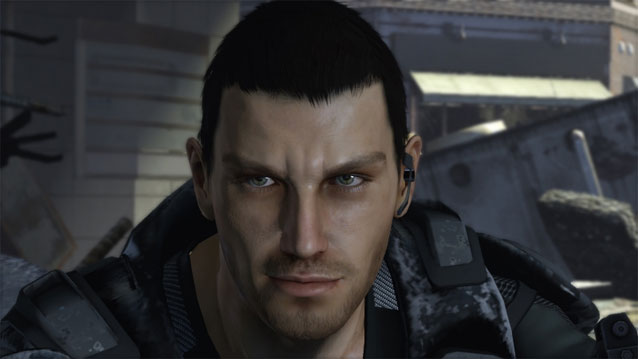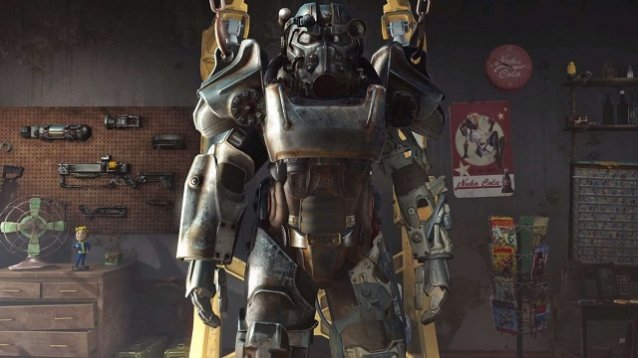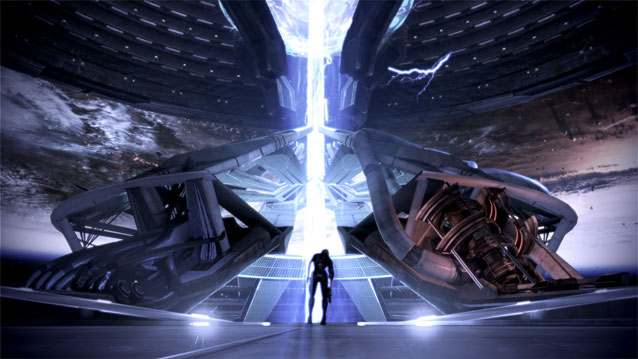


I didn’t know that Binary Domain even existed going into E3. So when Sega sat me down with the game’s lead director, and lead designer I was lucky to have the presentation about the game beforehand. Unprofessionalism aside, Binary Domain is a third person squad based shooter that has some interesting ideas. Its aesthetics however are some of the most generic I’ve ever seen. The game isn’t due until 2012 so there is plenty of time to spruce up the looks, and polish the solid design elements.
Binary Domain is set in the late 21st century where robots are commonplace. International laws affect the manufacture of these robots a la I, Robot. The principal law, however, is that no robots can be made to look like humans. The story kicks off with one corporation doing exactly that. A covert attack is made on an American robotics firm by an illegal humanoid robot. The main suspect is the company’s main Japanese rival. Thus the stage is set for another Trans-Pacific conflict and the player is, of course tasked with getting to the bottom of the situation.
The core gameplay is similarly predictable. Binary Domain is a third person cover shooter. Japanese companies have been iterating on this design for more than a year now with both good (Vanquish) and bad (Quantum Theory) results. Vanquish succeeded by soaking a Western design in Japanese style, and Quantum Theory failed by ham-fisting a Gears of War clone. Binary Domain resides somewhere between the two and is leaning toward the Vanquish side of things, though it isn’t paced frenetically. The mechanics seem solid. The game doesn’t fall into the pitfalls of the genre were cover can be too ‘sticky’ or blind firing over or around cover turns you into a pinnacle of accuracy.
Binary Domain does have two features to add to the regular genre tropes. Both look interesting enough from a conceptual point, but it remains to see if they will truly be game changing features. The more interesting inclusion is procedural damage. Since the primary enemies are robots this can be implemented with no concerns over ratings issues. Basically, when you shoot a limb off of an enemy it will affect the way the enemy behaves. The obvious example is that when a robot’s legs are destroyed it will continue to crawl at you while attacking. Granted this has been done before but Sega’s team is doing some more interesting things with the idea as well. When you take an enemy’s head off it loses its ability to distinguish between friend and foe, attacking both in equal measure. The best implementation however, came at the end of the demo when the squad was facing down a giant quadrupedal mech. The sense of scale was impressive, but the procedural damage mechanic was effective here, as well. This enabled a return to the old-style boss fights that happen in stages. As pieces were blown off the boss, it changed tactics. This procedural damage, implemented well across the entirety of Binary Domain could propel the game above its generic conceits.
Voice control is implemented as well and ties into the game’s team mechanics. Using a headset or Kinect, players will be able to give orders to their squad mates, though whether or not they listen is an entirely different matter. Binary Domain uses a trust gauge to determine the relationship between the player character and the team mates. For example, if a teammate suggests a strategy (“You go left, I’ll go right.”) and the player follows through with it you will build trust with that character. In the same vein, if you constantly ignore their ideas trust will not be estbalished, and they may not follow your orders or revive you when injured. In theory, I like this feature, but if the dialogue is bad and there is no actual character development then this whole system will point out the game’s flaws instead of add value.
Like all games in development Binary Domain remains up in the air. But it’s more in flux than most because it’s so unclear as to whether or not this game is going to rise above the mediocre crowd of third person shooters. Binary Domain has the ideas to do it, but it all depends on how they tie together. Keep an eye on this one, but be prepared for the game to go either way.




 The Next Mass Effect 3 DLC: How BioWare Can Score a Win
The Next Mass Effect 3 DLC: How BioWare Can Score a Win 15 Biggest WTF Moments in Video Games From The Current Generation
15 Biggest WTF Moments in Video Games From The Current Generation Metro Last Light Wiki: Everything you need to know about the game .
Metro Last Light Wiki: Everything you need to know about the game . Easiest Way To Defeat The Witcher 3: Wild Hunt Noonwraith Monster
Easiest Way To Defeat The Witcher 3: Wild Hunt Noonwraith Monster Battlefield 4: Most Wanted Features
Battlefield 4: Most Wanted Features